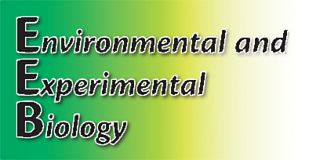
On-line: ISSN 2255–9582

| Faculty of Biology, University of Latvia | ||||||

|
Hard copy: ISSN 1691–8088
On-line: ISSN 2255–9582 Environ Exp Biol (2017) 15: 225–231
|
|||||

|
About the Journal | Retractions | Open Access | Author Guidlines | Current Issue | Archive |
|
Environmental and Experimental Biology |
Environ Exp Biol (2017) 15: 225–231 |
Ecological mussel farming in the Baltic Sea has gained attention due to ability of mussels to bind high concentrations of nitrogen and phosphorus in their tissues. Removal of mussels could serve as abatement of eutrophication. The Latvian coast of the Baltic Sea is one of the most exposed coastlines of the Baltic due to the highest wind and wave energy. Experimental units for mussel recruitment were placed in three locations at 15, 20 and 25 m depth assess the potential for mussel farming. The spawning maximum was observed in the middle of May, followed by recruitment in June. Recruitment of Mytilus was observed on all experimental units with higher densities at 6 to 10 m depth. Observations suggest that mussels can use artificial substrate for recruitment even near high energy shores. However, if mussel farming is to take place, submerged offshore farming techniques should be considered.